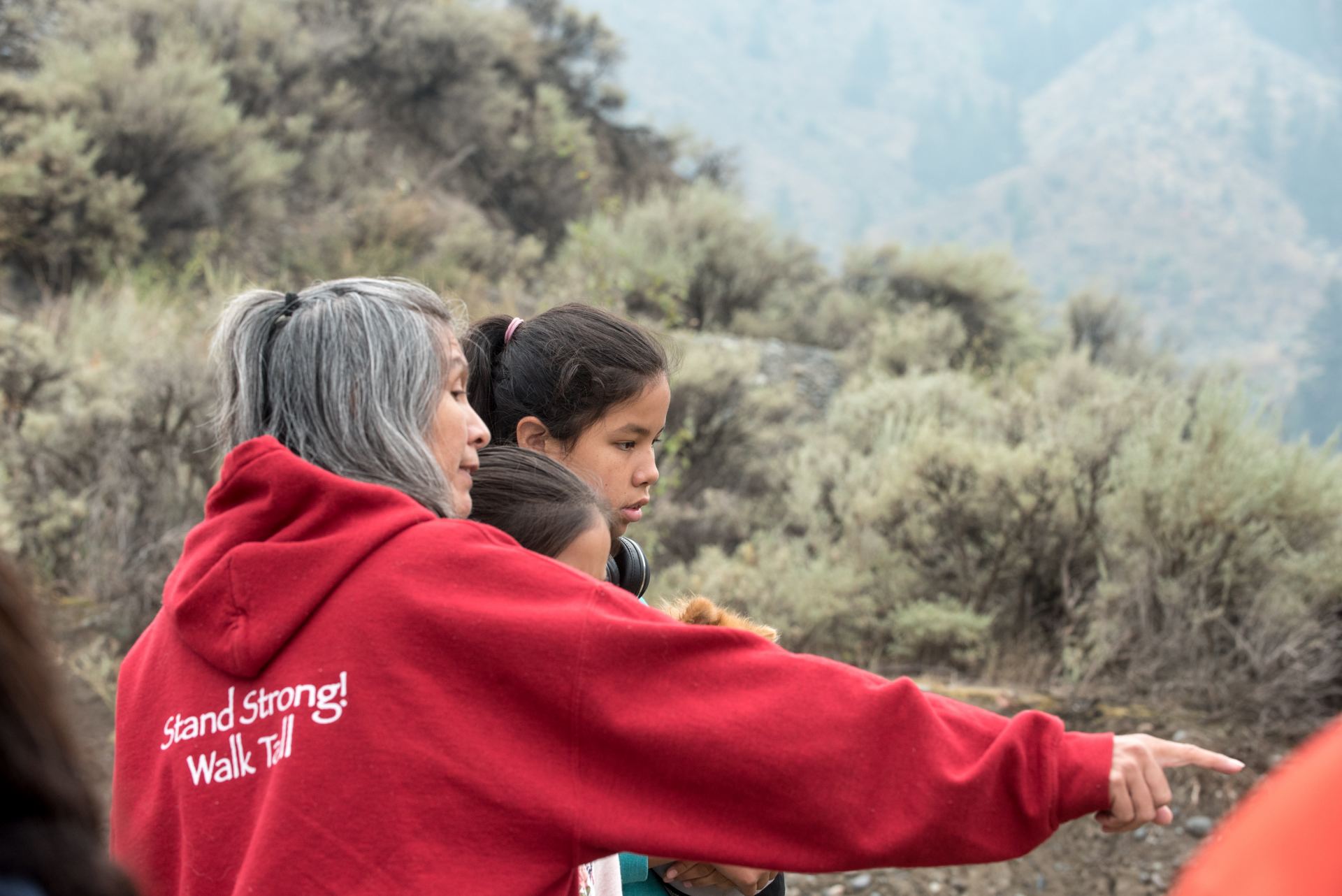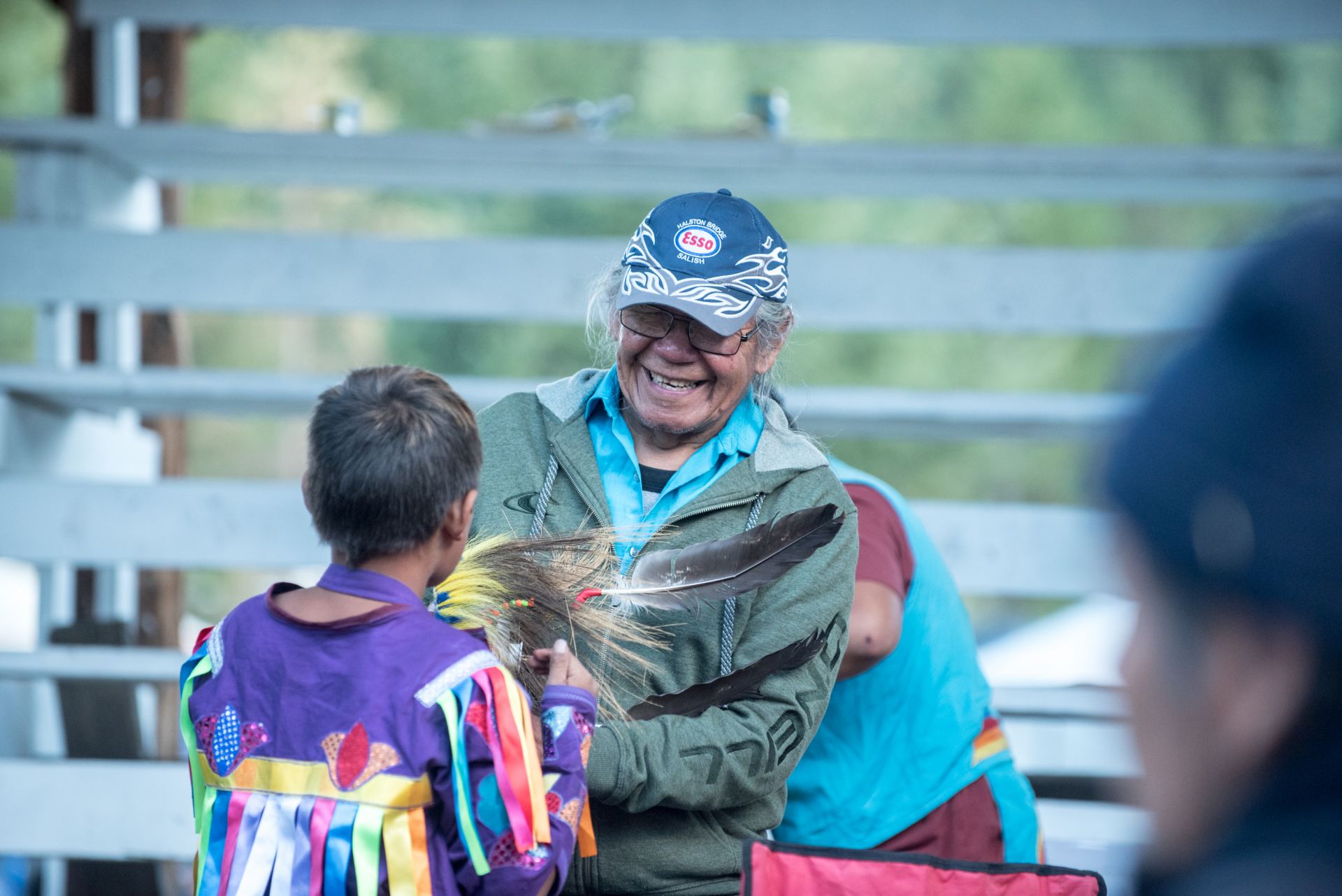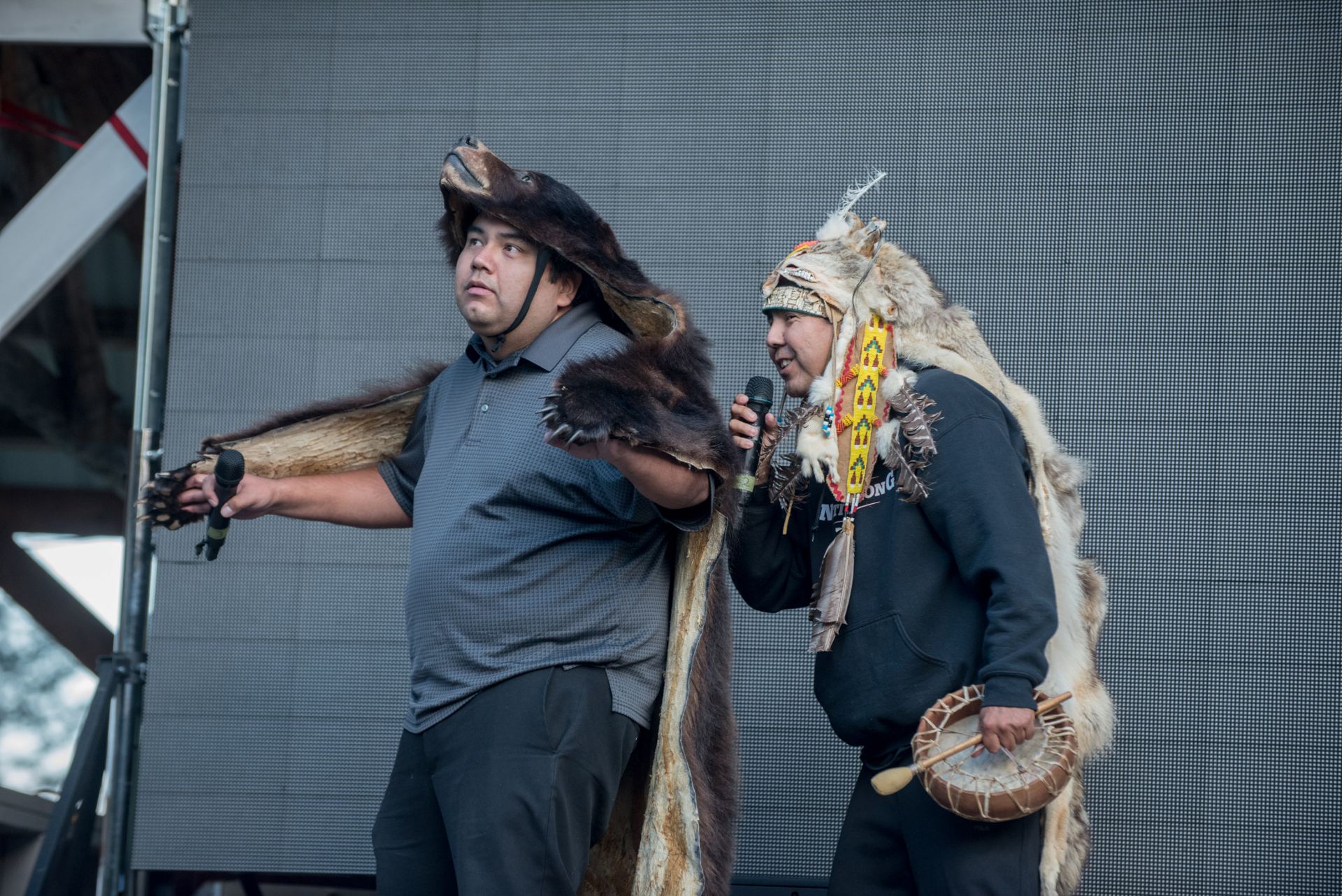Secwepemctsín
The language of the Secwepemc people is known as Secwepemctsín. Secwepemctsín comes from the land and is a reflection of Secwepemc identity. It serves as a translation key to everything relating to the Secwepemc.
Flora Sampson, Cstálen
Our language is sacred and so is our land, so they both connected. Our language is connected to the land, the water, the medicines, the animals, the fish, to everything. Everything’s so sacred. To the Secwepemc people. That’s the way I see it. And I’ve heard the ancestors talk about it like that.
Flora Sampson, Cstálen
Dorothy Johnson, Esk’ét
When we to residential school we couldn’t speak our language so I think that’s how we just about lost our language because we thought its better if we speak to our children in English because we were punished if we spoke our language over there.
Dorothy Johnson, Esk’ét
Ralph Philips, Xats’ull
I am Secwepemc. I can’t speak the language. That’s one of the things that the government took on me. The strange thing I guess wanting to start talking about what needs to happen. I think I need to talk about this, for me anyway that one of the things was that I was told that the language was something that we didn’t have, not supposed to use that and I watched little kids getting licked because of it.
Ralph Philips, Xats’ull
Fred Johnson, Esk’ét
I was complaining to this Elder about residential school and I said they took away my language and my culture and my beliefs and my philosophy and he said what’s stopping you now? And I guess that’s what it is, what’s stopping you from speaking your language and it could be lots of things, you didn’t have no Elders or you didn’t have your parents there.
Fred Johnson, Esk’ét
Steve Basil
From time to time we hear representatives at gathering speaking the language and that’s always a good thing. Not always we understand because the residential school had a big effect on our language and some of the teachings of our young people.
Steve Basil
Ronnie Jules, Cstálen
The Secwepemc language is so, is really, it’s our life, it’s our identity. As I said we have a different, as we go west and north our dialect of our language is modified a little differently and as we go east it’s a bit different because our nation is so huge, it’s very huge, and that’s how we are identified.
Ronnie Jules, Cstálen
Dallas George, Esk’ét
Learning our language is the most important thing to me. I’ve taken Shuswap class every semester… And I go out of my way to try and learn my language fluently.
Dallas George, Esk’ét
Wayne Christian, Splatsín
Language and laws go hand in hand, and we have to stand up our laws. It’s all contained in our oral history that’s been passed down for over 10,000 years. Our knowledge of the land, as everything we know can be correlated with the actual Western science. Our people do know and do have knowledge and have scientific knowledge of the land. So that’s what’s important with the laws.
Wayne Christian, Splatsín


